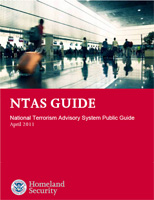Preparing for War, too Slow?
Keep an eye on Libya, it too may require a repeated effort.
Without any formal announcements, the military has been testing missile systems both in an offensive and defensive measure. The Pentagon is charged with keeping ahead of forecasted conditions and they are successful and do make robust recommendations to the White House. Under sequestration, some needed measures are not possible yet proving the need given recent global terror events some requests are approved while others are delayed.
ALBUQUERQUE, N.M. (AP) — An early morning missile test in New Mexico left a white contrail that quickly turned into a corkscrew that was visible for hundreds of miles Thursday.
The unarmed Juno target missile was launched at 6:55 a.m. MST from an old military depot in northwestern New Mexico.
It was aimed at White Sands Missile Range, some 215 miles away, but a White Sands spokesman says it was successfully intercepted over the range by a Patriot missile and disintegrated midair.
Range spokesman Luciano Vera says a second Patriot fired from White Sands self-destructed after the first Patriot hit the target.
The corkscrew-shaped contrail was visible in Phoenix, 245 miles southwest of the launch site.
Moving forward, the Pentagon is also diligently working to gain a robust intelligence advantage as well as expanding a Middle East war footing.
WASHINGTON — As American intelligence agencies grapple with the expansion of the Islamic State beyond its headquarters in Syria, the Pentagon has proposed a new plan to the White House to build up a string of military bases in Africa, Southwest Asia and the Middle East.
The bases could be used for collecting intelligence and carrying out strikes against the terrorist group’s far-flung affiliates.
The growth of the Islamic State’s franchises — at least eight militant groups have pledged loyalty to the network’s leaders so far — has forced a debate within the Obama administration about how to distinguish between the affiliates that pose the most immediate threat to the United States and Europe and others that are more regionally focused. The regional groups, some officials say, may have opportunistically adopted the Islamic State’s brand to bolster their local clout and global stature.
In the midst of that debate, senior military officials have told the White House that the network of bases would serve as hubs for Special Operations troops and intelligence operatives who would conduct counterterrorism missions for the foreseeable future. The plan would all but ensure what Pentagon officials call an “enduring” American military presence in some of the world’s most volatile regions.
While it is in vogue to side with Putin and his mission to stop Islamic State in Syria, it is pure propaganda. Russia has assumed a full defensive posture aiding Bashir al Assad and is only targeting anti-Assad forces in Syria, many of which are supported by the West and the Middle East Gulf States. Russia in fact is expanding their bases in Syria stealing away some objectives even from Iran. Further, Russia is using the conflict in Syria to test the skill levels of ground troops and newly created weapons systems.
Then while the globe is focused on tracking terrorists around the world and connecting them to Islamic State or al Qaida, there is yet another matter of grave concern pointing to North Korea. North Korean leader Kim Jong Un says his country has developed a hydrogen bomb, state media reported Thursday.
Jong Un made the statement during an arms industry inspection on Wednesday, South Korean news agency Yonhap said, citing reports.
Information related to the highly secretive nation of North Korea, which has nuclear weapons, is extremely difficult to independently confirm.

A report by the North’s official Korean Central News Agency said the country is now a “powerful nuclear weapons state ready to detonate a self-reliant A-bomb (atomic bomb) and H-bomb (hydrogen bomb) to reliably defend its sovereignty and the dignity of the nation,” Yonhap reported. *** This is not a new condition, as the United States has advanced technology to test the air quality to determine what it reveals, which is in fact part of the signals intelligence used by the geo-spatial systems. Going back a few years, conditions were prove what North Korea was doing when it comes to the creation of a hydrogen bomb. There was and is a surge in radiation going back to 2010.
We cannot overlook the matter of the continued aggression by China in the South China Sea where the United States has deployed the USS Larson, which is a guided missile destroyer tasked with surveillance and intelligence gathering.
While there is still the matter of Iran testing missile systems in violation of all resolutions, there is very little if anything being considered to stop Iran.
It appears all of these global events are in fact part of the briefings provided to the White House, yet the Commander in Chief has proven he would rather remain focused on social justice issues and defer national security matters to the next President. You be the judge as to what the worldwide global security conditions will be by then.

 The
The 
